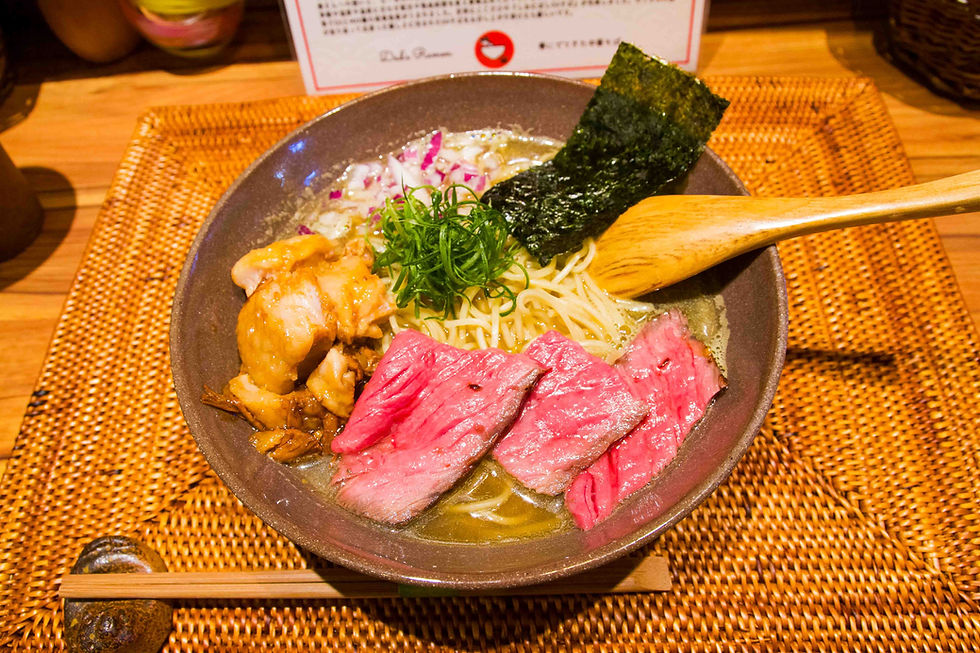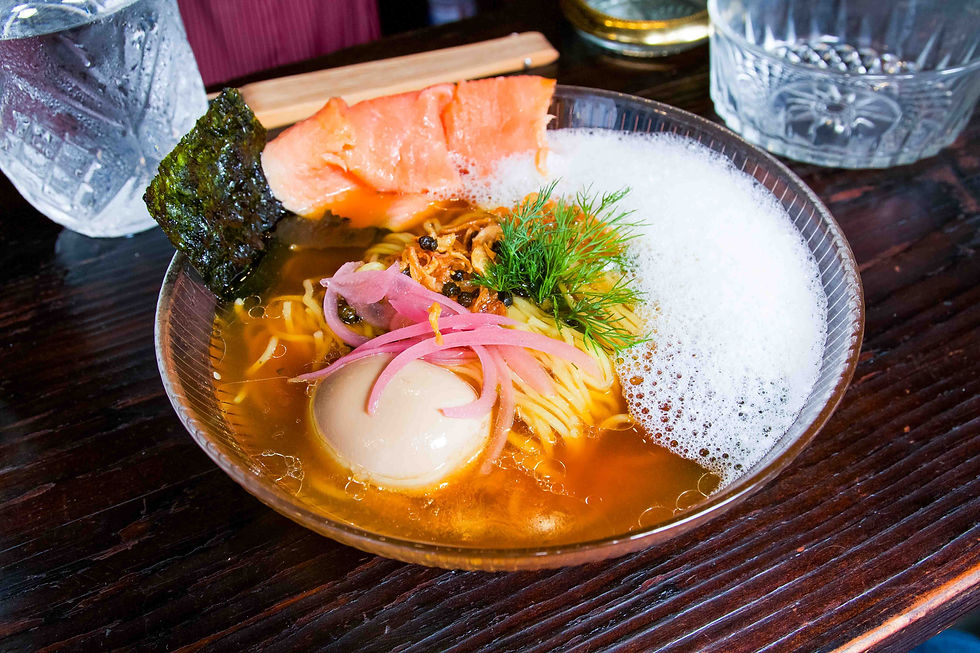Ivan Ramen New York – Tokyo Roots with a New York Edge
- Frank
- May 3, 2025
- 3 min read
Updated: May 3, 2025
Ivan Ramen New York is the product of Ivan Orkin’s rare path. He's an American who didn’t just open a ramen shop in Tokyo, but became a bit of a superstar in a space where few outsiders succeed. He launched two ramen shops in Tokyo, both of which were met with critical acclaim.

This was a huge achievement. Eventually, he moved back home to New York City. He furthermore closed his Tokyo shops to focus fully on the Lower East Side location. This is now the sole Ivan Ramen.

I actually met Ivan years ago during a visit to his Tokyo shop back in high school. It was brief—he probably wouldn’t remember—but it stuck with me.

Now that I’ve had the chance to try his ramen again on this side of the world, I’ll just say this: as someone who’s eaten more bowls across Japan than I can count, spoiler—his ramen is still legit.
Tokyo Shio Ramen – The Bowl That Put Ivan on the Map
This is the bowl that got Ivan noticed in Tokyo.

The somewhat murky broth is lightly seasoned with sea salt. There’s a subtle nod to Ivan’s Jewish roots here—schmaltz, or rendered chicken fat, adds a silky roundness. While there’s some richness from chicken bones, the flavor leans more heavily into fish, thanks to the dashi.

The noodles are thin, rye-based, and have a pleasant wheaty fragrance. Toppings include green negi (which adds just a touch of sweetness), a soft-boiled egg, melt-in-your-mouth chashu pork, and one of Ivan’s signature moves: a roasted tomato.

That tomato was a game changer when it first appeared in his Tokyo shop. It brings a pop of bright acidity and umami that plays beautifully against the soup’s gentler base.
You can see how this bowl reflects both serious technique and Ivan’s own flavor instincts.
Spicy Miso Ramen – Deep Heat, Deep Flavor
In the Spicy Miso Ramen, the soup is chicken-based and thick. It's almost gravy-like in parts—and built around a mix of five misos and twelve types of chili peppers. There’s heat, but there’s also that slightly sweet kick that reminds me of dobanjan or even gochujang.

Thin noodles soak up the lava-red broth like a sponge, and minced pork adds body alongside raw garlic and bean sprouts. What stands out here is that the spice isn’t just loud—it’s structured. It lingers, it builds, but it doesn’t drown the bowl.

Triple Pork Triple Garlic Mazemen – Not First-Date Material
Don’t let the name fool you—the garlic is present, but it’s not the harsh, raw kind that burns. It’s rounded, soft, and deeply infused into the greasy, pork-based oil that coats every strand of the thicker noodles.

This is soupless ramen done right. There’s richness from pork belly done two ways, a dusting of bonito powder to punch up the umami, and that heavy-but-satisfying vibe that mazemen should have.

As with the Shio Ramen, the chashu pork is beautifully soft and falls apart with barely a nudge of your chopsticks.
That said, fair warning—you may want to cancel any meetings afterward.
Final Thoughts on Ivan Ramen New York
Ivan Ramen isn’t trying to replicate classic Tokyo ramen shop-for-shop, and that’s exactly why it works. There’s clear technique behind every bowl, but also a sense that Ivan’s not afraid to add something personal. This is schmaltz in the broth or the roasted tomato.

For me, as someone who’s eaten thousands of bowls all over Japan, I came in with curiosity—and left seriously impressed. Ivan’s ramen holds up like no other.

It felt thoughtful. It felt deliberate. And it felt like the work of someone who’s done more than just study the craft—he’s lived it, shaped it, and still makes it entirely his own.








